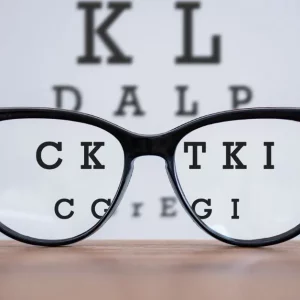Stutters are common speech disorders in early childhood, but they can also occur after a traumatic brain injury. Doctors refer to this type of speech impediment as neurogenic stuttering.
To better understand this condition, you’re about to learn the causes, symptoms, and treatments for stuttering after head injury.
What is Neurogenic Stuttering?
Neurogenic stuttering is a type of speech fluency disorder. It causes problems with smoothly producing words. People with stutters after a head injury may speak in a fragmented or halting way. They usually take a long time to say what they want, especially if the word is complex.
Neurogenic stuttering typically occurs after a traumatic brain injury (TBI). Unlike developmental stuttering, which appears in early childhood, patients generally have normal speech patterns prior to their head injury.
The following are a few other distinctions doctors have made between neurogenic and developmental stutters:
- Children with developmental stutters struggle with pronouns and prepositions, but adults with neurogenic stutters struggle more with content words (nouns, verbs, adjectives, etc.)
- With neurogenic stutters, the speaker does not appear anxious about their speech patterns
- Related symptoms such as grimacing, fist-clenching, and blinking are rare in patients with neurogenic stuttering after head injury
These signs can help doctors distinguish between the different types of stutters a person can experience.
Causes of Stuttering After Head Injury
The causes of stuttering after head injuries can be grouped into two categories:
- Stutters associated with aphasia
- Stutters associated with speech motor problems (apraxia of speech)
Below, we’ll discuss aphasia and apraxia, and how they contribute to stuttering.
Aphasia
Aphasia occurs after damage to the language centers of the brain, known as Wernicke’s area and Broca’s area. Wernicke’s area and Broca’s area are the regions in the brain that play a pivotal role in understanding and producing language. They are found in the language dominant side of the brain which for most people is the left hemisphere.
For example, if a brain injury damages Broca’s area, the person will struggle to produce fluid speech. Most patients with Broca’s aphasia speak in short, fragmented sentences.
A person with Broca’s aphasia can also develop a stutter. This occurs because their brain struggles to find the correct words. Therefore, the person makes repeated attempts to self-correct, which can sound like stuttering.
Apraxia of Speech
Apraxia typically occurs after damage to the cerebellum. It causes problems with coordinated muscle movement. It can affect any muscle group, including speech muscles such as the mouth or tongue.
Most people with apraxia make odd or exaggerated movements with their lips. They also pronounce some words strangely. However, sometimes apraxia can cause stuttering after a head injury.
Psychogenic Stuttering After Head Injury
Another type of stuttering after head injury is known as psychogenic stuttering. Its appearance is linked to emotional stress or trauma.
Psychogenic stuttering is not connected to specific types of brain damage. Rather, it most likely develops as a coping method.
Some key features of psychogenic stuttering include:
- Sudden onset of stuttering behavior
- Frequent repetition of the initial or stressed syllable in a word
- No secondary symptoms
- Stutter persists in both conversational speech and oral reading
Since psychogenic stutters have no physical cause, they will require a unique treatment approach.
Treating Neurogenic Stuttering After Head Injury
Treatment for stutters will be directed by a speech-language pathologist. They will teach you activities that harness your brain’s neuroplasticity and help you recover fluent speech.
Some techniques can also help reduce symptoms of stuttering after head injury. The following are some changes your speech therapist might instruct you to make to eliminate stuttering:
- Slow your speech rate by saying fewer words each breath.
- Learn how to use shorter sentences and words
- Start each phrase from a relaxed posture of speech muscles
- Learn proper breathing techniques
- Identify specific disruptions in speech patterns and address those
In addition, if aphasia or apraxia causes you to stutter, your speech therapist will address those underlying issues. Sometimes improving a person’s aphasia will eliminate their stutter, for example.
On the other hand, psychogenic stutters require a different approach. For example, addressing anxiety and PTSD through cognitive behavioral therapy can sometimes help reduce your stutter.
Understanding Stutters After Brain Injury
Stuttering after brain injury occurs for a variety of reasons. It is most frequently a result of damage to the language centers of the brain.
However, sometimes there are no structural or neurological components that cause a stutter. Rather, they are a result of emotional trauma.
Fortunately, speech therapists can help you address the underlying causes of your stutter. They can also teach you strategies to correct any poor speaking habits you might have developed.
With the right techniques, you can eliminate unwanted stuttering and speak confidently once again.










